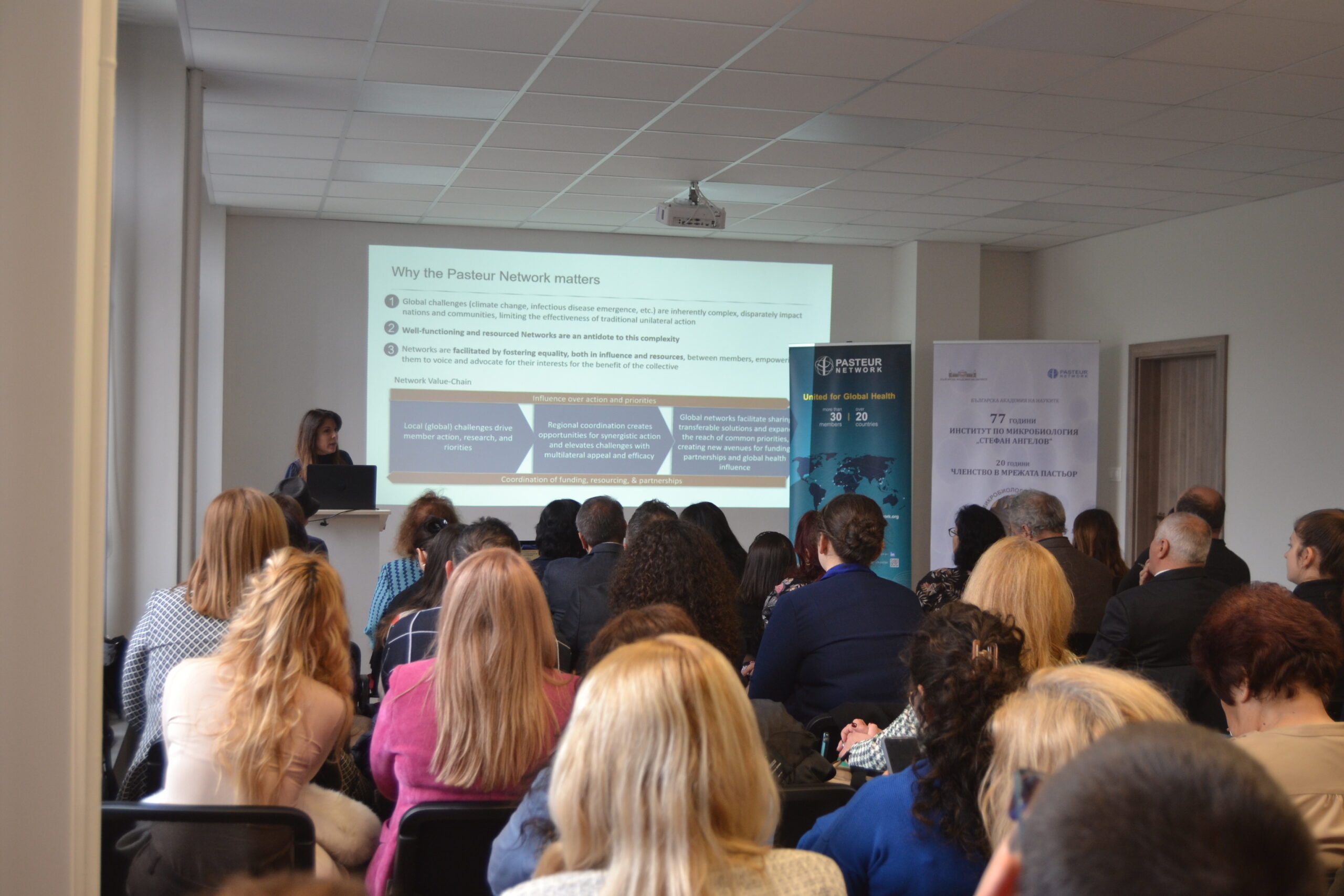The Bulgarian Academy of Sciences (BAS) includes dozens of the most prominent Bulgarian clinicians, biologists, immunologists, virologists, geneticists, mathematicians and other diverse specialists who are involved in the problems of the global pandemic caused by the new coronavirus. With their research work and active participation in various media presentations, where they share the most up-to-date and objective data on the pandemic, they contribute a lot to the proper awareness of the public and to the scientifically based guidelines for the fight against coronavirus. With all this in mind, we consider it necessary to express our opinion on the forthcoming vaccination campaign against coronavirus infection, as a result of the analysis of the existing data from the world literature and current practice.
Without dwelling on the very complex medical and economic issues related to the growth of the pandemic and the efforts to control it in our country and around the world, we would like to present information briefly, especially on issues related to available vaccines, their importance and the way the immunisation programme in our country is organised. We believe that this will help to properly understand the great meaning of immunisation and will help to alleviate anxiety in society from the false, unscientific or contradictory information which is circulating.
In the absence of a specific and effective drug against coronavirus infection which modern medicine does not have, except for strict adherence to anti-epidemic measures, the only option is a vaccine. This is proven by the vast, many years of experience that humanity has gained in the fight against infectious diseases. A vaccine that is harmless and has an effectiveness of at least 50-60% (i.e. creates immunity in such a percentage of those immunised) will play a huge role in limiting the infection. Unfortunately, the data we have so far show that collective immunity to the coronavirus is very slow and practically difficult to achieve naturally (which is also associated with great ethical and moral challenges), so vaccines will help a lot in its construction.
To date, more than 220 coronavirus vaccines are being developed worldwide, of which 56 are in clinical trials and more than 10 are in the third (most important) phase of a clinical trial which requires, according to globally accepted rules, to be applied to 30 000 – 40 000 people to objectively assess their safety and effectiveness. It should be well known that under normal conditions a vaccine is developed in 3-5 years or more. But the situation in which the whole world finds itself – a very severe and rapidly spreading infection that takes hundreds of thousands of lives and is a colossal health, social and economic problem, gives reason to the WHO, all international and national regulatory authorities and state institutions to allow the accelerated introduction of vaccines, subject to all requirements for well-proven safety. No compromise is made in this regard, and vaccines must meet well-established high world standards and the expected benefits of their use far outweigh the foreseeable potential risks. As for the effectiveness of vaccines and the nature of the immunity they create and their duration, we will be able to give a satisfactory answer not earlier than one year from the beginning of their application when we will have sufficient convincing scientific data as a result of monitoring hundreds of thousands immunised. In essence, this is the so-called fourth or “post-marketing” phase of the clinical trial.
Quite schematically, we will present the main approaches for the development of anti-covid-19 virus vaccines:
- RNA vaccines. On a pre-prepared (synthetic) mRNA platform, which is loaded with genetic material from the coronavirus included in liposomes (for greater stability and antigenicity), the synthesis of the viral antigen is stimulated in the human body which subsequently causes the synthesis of protective viral antibodies and cellular immunity. The vaccines of the companies Pfizer and BioNTech, and Moderna were created on this most modern principle. In their study, it was not found that this mRNA damages the human genome or that it interacts with DNA. In addition, it decomposes very quickly and does not circulate in the body.
- Vector vaccines. Use of a non-human adenovirus (or other viruses) that is loaded with SARS-Cov-2 genetic material and is used as a vector in immunisation. Thus, the vaccines of Astra Zeneka, Janssen-Cilag, the Russian vaccines Sputnik and Vector and others were developed.
- Protein vaccines. Protein components are used from the spikes of the virus, from its shell or body (nucleocapsid), which have proven antigenic (immunostimulatory) activity (Sanofi-GSK).
- Adjuvant vaccines. Use of attenuated SARS-Cov-2 virus for immunisation. Very often in combination with the so-called adjuvant (enhancer) of the immune response. This is how some Chinese and Cuban vaccines were created.
All of these vaccines are given twice in an interval of 21 to 28 days. From the data presented by the various manufacturers, as a result of the clinical trial, they do not cause serious side effects and sufficiently stimulate humoral (antibody) and cellular immunity.
In the European Union (EU) so far (18 December 2020), 5 vaccines have been presented for registration to the European Medicines Agency (EMA): of Pfizer / BioNtech, Moderna, Astra Zeneka, Janssen-Cilag and Sanofi-GSK; ready to be presented are several more. The final decision on their approval, as it became clear, will be taken on 21 December 2020, after which their application in the EU will be possible. The Pfizer / BioNtech vaccine was approved a few days ago by the British regulatory authorities and approved for use in the UK. Immunisation with the Russian Sputnik V vaccine has been carried out for 1-2 months on certain contingents in the Russian Federation, and the same happens in China, where immunisation is carried out with two different Chinese vaccines approved by the regulatory authorities of Russia and China, respectively. Immunisation with the FDA-approved Moderna vaccine has been underway in the United States for several days.
According to the general EU action plan against the COVID-19 pandemic, Bulgaria will first import the Pfizer / BioNtech vaccine within a few days and will start its implementation after the expected approval by the EMA. The vaccine will be free and voluntary. To this end, a very active organisation has been initiated to solve important logistical problems related to the application of the vaccine: ensuring its proper storage and transport, as this requires strict adherence to a refrigeration temperature of -70°C to -80°C; establishing an appropriate organisation for the immunisation; determining the places for its implementation and the persons who will be in charge of it; most importantly – determining the contingents to be immunised and the ways to inform and attract them; conducting a broad awareness campaign on the great importance of vaccines for both the individual and public health in order to stimulate collective immunity and limit the spread of the infection. In this regard, the Ministry of Health has created a detailed work plan, the implementation of which has begun. All this is forthcoming and will develop very dynamically, in view of the rapidly changing situation with the coronavirus pandemic in our country and around the world, and will depend on the approval of other vaccines and their import. This will probably set new requirements in the course of immunisation and the way it is carried out.
In conclusion, we allow ourselves to say that it is recommended that all healthy people, without accompanying severe chronic diseases, without clinical manifestations at the moment and over 16-18 years of age be immunised. It is mandatory to consult your personal physician beforehand to discuss this issue, taking into account all the indications and contraindications for the vaccine, described in detail in the so-called “Brief description”, or its “passport”. This implies the rapid organisation of a broad mass media and institutional campaign so that doctors and citizens can be very well informed and convinced of their decision of great personal and public interest.
The opinion was prepared by a team consisting of: Academician Bogdan Petrunov, Prof. Radostina Alexandrova – Institute of Experimental Morphology, Pathology and Anthropology with a Museum of BAS, Prof. Penka Petrova – Director of the Institute of Microbiology of BAS, Prof. Iva Ugrinova – Director of Institute of Molecular Biology of BAS.






